AITSA! After-care programme
South Africans have their own special words cobbled together from their local languages and natural cultural expressions, sometimes referred to as “Saffa slang”.
“Aitsa” (pronounced eye-tsa) is one such word. It is used in Afrikaans, but is probably from Khoisan, one of the ancient indigenous languages of Southern Africa that was assimilated into the Afrikaans language.
Aitsa! is an exclamation of approval, as in “Wow, you are great!” And so it is the perfect name for an After-Care programme dedicated to creating a safe, loving and stimulating environment for the children of Khylemore, a wine growing village near Stellenbosch.
The programme was started seven years ago by Marietjie Steyn who lives on a farm near the village and was prompted to do something for the young children she saw wandering around the streets unsupervised after school.
She approached community members who run a soup kitchen and asked them to choose 25 of the Gr R learners who were most in need. She then devised a programme that would supplement the tuition given at school, but would also stimulate and care for these children in a fun and loving way.
So successful was this, that Marietjie was able to attract funding and expand her programme, taking a new grade’s children in every year so that this year, the Aitsa! Programme extends from Gr R right up to Gr7, the final year of primary school, with a full complement of 17 salaried staff.
Programme co-ordinator Melissa van der Merwe explains more: “We aim to provide a holistic education of all our children, focussing on their physical bodies as well as their minds, their hearts and their souls.”
So besides healthy meals and the essential homework supervision that takes place every day in fully equipped container classrooms, the children are offered coaching in rugby, soccer, netball, golf, chess and mountain biking. There are also needlework and dance classes, and Aitsa! has their own choir and brass band.
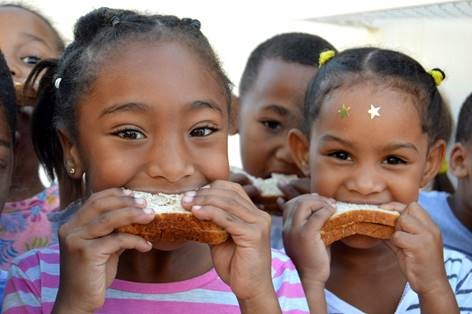
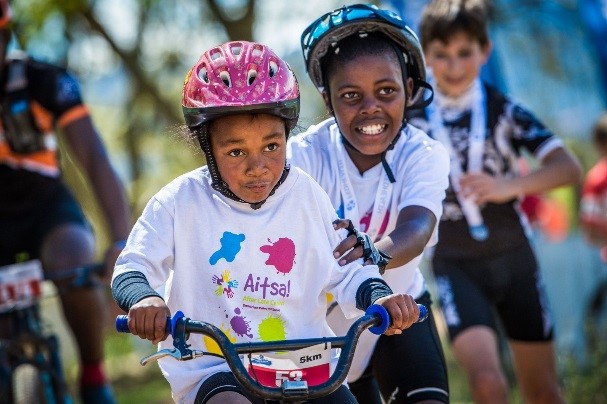
“We are determined to ensure that every child reaches his or her full potential,” continues Melissa. “Our teachers receive continuous training to make sure they are well-equipped but we also insist on strong parent involvement. Parents have to make a small financial contribution to the cost of keeping their children in the programme, and several activities and parent evenings are held to educate the parents on how they can help their children. We give talks on subjects such as discipline and on how to play together as a family,” says Melissa, “and we also organise outings like mountain walks and picnics where parents are encouraged to bond with their children in a fun way.
Aitsa! has an impressive list of donors who keep the programme running smoothly. Farm owners and residents from the surrounding area make a significant contribution but corporate sponsors and the Cape Wine Auction also make sizeable and regular donations.
Besides the salaried staff there is also a posse of volunteers, particularly in the form of counselling and therapy. “In a community such as ours, neglect, violence and death are common and our volunteers make a huge difference here with one-on-one counselling and remedial help.
Perhaps the greatest measure of the success of this programme is the 98% daily attendance rate. “The kids love being here,” smiles Melissa, “because they feel safe and loved. Even the parents have got together to hold fundraisers for us, which shows the buy-in from the community.
“And further proof of our success is the excellent academic performance of our children at school. The majority of the Top 10 academic performers in every grade at the school attend the Aitsa After-Care Centre.”
A visit to centre is an eye opener. Up a deserted, bumpy track, one is immediately impressed by a row of brightly painted containers, lined up in orderly fashion. It’s lunch-time and the children are enjoying their meal in the sunshine, but soon file into separate classes. A quick peak into these classrooms and you are met with huge grins, polite acknowledgement and a restrained exuberance. Proof that these children obviously really do feel safe, loved and stimulated.
Perhaps the best way of summing it up is: Aitsa!
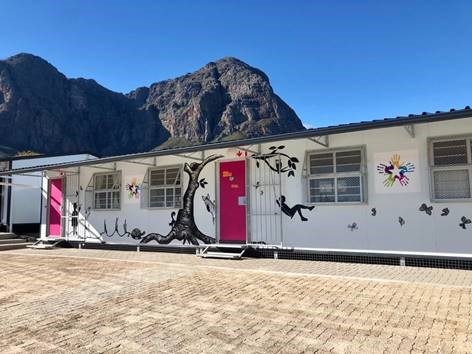
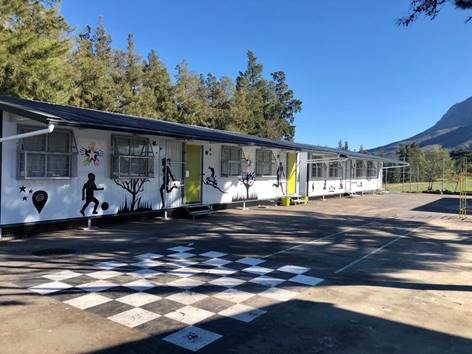
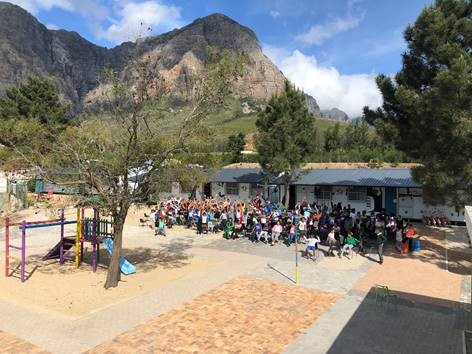
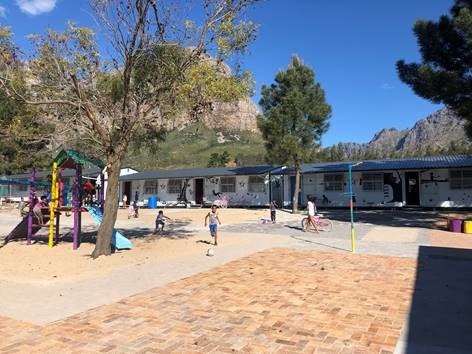
- by Julia Moore